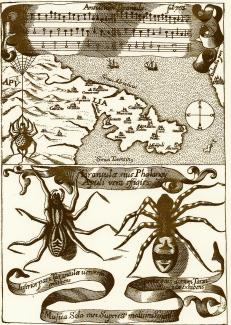Event
A Land of Remorse: Tarantella of the “Italian Thought”
… the Italian word rimorso is appositely used to indicate both “remorse” and “re-byte.” (English translator’s note to Ernesto De Martino’s La terra del rimorso)
In June 1959, as the new Italy of the economic miracle had barely entered, "kicking and screaming, into the twentieth century" (as The Economist put it), ethnologist Ernesto De Martino gathered a team of researchers-- a psychiatrist, a psychoanalyst, a musicologist and a sociologist-- to conduct a research in the Southern region of Apulia on the "choreutic-musical-chromatic exorcism" known as tarantella. Immune from the nostalgic pathos of folkloric revival, De Martino's The Land of Remorse was certainly an attempt at understanding the persistence of past forms -- what he called relitti, vestiges--in the horizon of capitalist modernity. It was perhaps also the product of De Martino's own remorse for having embraced, during the fascist Thirties, the myths of primitivism and barbarism -- a cure for Europe's decadence -- concocted by such journals as Il selvaggio and predicated on the vitalism of Nietzsche, Bergson and Sorel.
